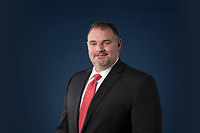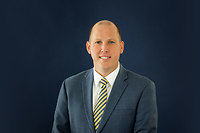Due to the restrictions and limitations placed on plaintiffs filing “medical claims”—i.e., a one-year statute of limitations, filing an affidavit of merit, and caps on certain damages—an important battle has arisen regarding what constitutes a “medical claim” under R.C. 2305.113, especially in the long-term care setting. Prior to 2002, long-term care facilities were not enumerated medical providers under Ohio law, and therefore, claims against them were not considered “medical claims.” However, House Bill 412, first introduced in October of 2001 and made effective on November 7, 2002, changed this dynamic by specifically including nursing homes and residential facilities as enumerated medical providers. 2002 Am.Sub.H.B. No. 412, previously codified as R.C. 2305.11(D). Despite this inclusion, courts and litigators alike have grappled with how and when to apply the definition of “medical claims” under R.C. 2305.113 to long-term care facilities.
Confusion exists primarily because the context of the injury is a bit different in the long-term care setting as compared to the hospital setting. In the former, the resident is often older and infirm, and claims often arise from an injury caused by a fall during a transfer while under the care and supervision of nurse’s aides. In the latter, most injuries arise while the patient is under the care and supervision of a physician. Therefore, plaintiffs often attempt to characterize the former as an “ordinary negligence” claim, while defendants argue that the distinction is one with no difference, and that both are equally “medical claims.”
In a significant victory for long-term care facilities, the court in Haskins v. 7112 Columbia, 7th Dist. No. 15 MA 0192, 2016-Ohio-5575 (Aug. 22, 2016), recently found that a claim arising from the actions of nurse aides in turning a bed-ridden resident while changing the sheets constitutes a “medical claim” under R.C. 2305.113. Although originally before the 7th District on the appeal of a Rule 12(C) dismissal—which was ultimately reversed—the appellate court later affirmed the trial court’s subsequent granting of summary judgment, noting that the depositions established that changing the bed linens on the day in question had a medical purpose and required the nurse aides to have certain expertise and skill. In particular, the plaintiff’s expert doctor agreed that turning the plaintiff to change the linens was a necessary part of the plaintiff’s incontinence care and a necessary part of her overall nursing medical care. It was also care-planned for, and it was necessary to prevent skin breakdown, ulceration, and to alleviate discomfort. Therefore, the court held that it was a “medical claim” subject to and barred by the one-year statute of limitations in R.C. 2305.113.
While the court’s affirmance of summary judgment was particularly fact-specific, there are a few important points that can be gleaned from the court’s holding. First, to be a “medical claim,” the particular actions at issue likely require some expertise and skill, rather than involve actions that any individual off the street can perform. Second, the actions must have a medical purpose that itself is intended to medically benefit the plaintiff is some way. However, this arguably still leaves a gray area where the actions are seemingly ordinary and basic, such as when a resident is transferred for purposes of going to the dining hall or to a recreation activity.
In these scenarios in which the actions do not appear to be particularly “medical,” the defendant must look at when the cause of action accrued. This is because on March 23, 2015, the statute was amended to include under the definition of “medical claim” those “[c]laims that arise out of skilled nursing care or personal care services provided in a home pursuant to the plan of care, medical diagnosis, or treatment.” (Emphasis added.) R.C. 2305.113(E)(3). The term “personal care services” is defined in R.C. 3721.01(A)(5) as, inter alia, “[a]ssisting residents with activities of daily living[.]” In turn, “activities of daily living” include “bed mobility, locomotion and transfer, bathing, grooming, toileting, dressing and eating.” Ohio Admin. Code § 3701-17-01(B). Therefore, in light of this amendment, a claim arising from a transfer that accrued after March 23, 2015, even where appearing ordinary, should nevertheless be a “medical claim” so long as it was pursuant to the resident’s plan of care.
Ultimately, the determination likely turns on why the alleged tortfeasor performed the at-issue actions. If the actions were performed in order to directly comport with requirements in a care plan that medically benefit the resident, then a strong argument can be made that the claim is a “medical claim” under R.C. 2305.113.
Should you have any questions regarding this decision, or any issue involving Assisted Living, or Long-Term Care, please contact one of our Long-Term Care Practice Group members.
This has been prepared for informational purposes only. It does not contain legal advice or legal opinion and should not be relied upon for individual situations. Nothing herein creates an attorney-client relationship between the Reader and Reminger. The information in this document is subject to change and the Reader should not rely on the statements in this document without first consulting legal counsel.
THIS IS AN ADVERTISEMENT



